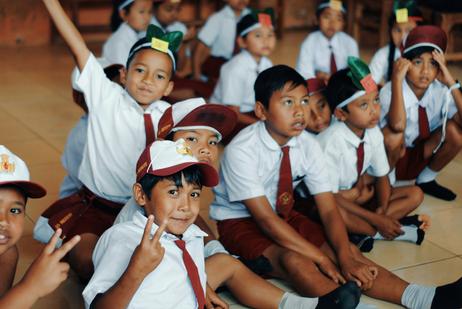Private Schools: 10 Challenges You Will Face
Private schools in the United States continue to attract families who want rigorous academics, small class sizes, and strong extracurricular programs. According to the National Center for Education Statistics, more than 4.7 million students are currently enrolled in private elementary and secondary schools nationwide. While the advantages are significant, choosing a private school also comes with challenges that parents must anticipate and plan for.
In 2025, affordability, competition, and shifting educational priorities make the private school landscape both rewarding and complex. Here are the 10 most important challenges you will face—and how to navigate them successfully.
1. The Cost of Tuition
The most pressing concern for most families remains tuition. Private school tuition can range from $10,000 per year at a parish-affiliated elementary school to more than $65,000 annually at elite boarding schools.
Additional expenses, such as books, technology fees, uniforms, extracurriculars, and travel for boarding students, can raise total costs significantly. Even schools with strong financial aid programs cannot fully offset the financial strain for many middle-income families.
Tip for parents: Compare the full “all-in” cost, not just tuition. Many schools offer need-based aid, sibling discounts, or merit scholarships. Families should also research 529 savings plans, which, since 2018, allow up to $10,000 annually to be used for K–12 tuition (IRS Guidance).
2. The Competitive Admissions Process
Admissions to top private schools can feel as selective as applying to an Ivy League college. Applications often require:
Standardized test scores (such as the SSAT or ISEE)
Teacher recommendations
Student essays
Interviews
Campus visits
With demand increasing, especially in urban areas, families must prepare early. According to the Independent Schools Admissions Association of Greater New York, many schools now receive more applications than available seats, making the process stressful for parents and students alike.
Tip: Start the process a year in advance. Attend open houses, prepare for standardized tests, and emphasize your child’s strengths beyond academics—schools often seek well-rounded students.
3. Adjusting to Academic Rigor
Private schools are known for their challenging academics. Students moving from a public or less rigorous private school may face a steep learning curve. Advanced coursework, such as AP, IB, or honors-level classes, demands strong study skills and discipline.
While the academic rigor is a major benefit, it can also create stress. Parents should prepare their children for higher expectations in reading, writing, and independent research.
4. Balancing Extracurricular Demands
Private schools place heavy emphasis on sports, arts, and leadership activities. While this holistic approach develops well-rounded students, it can overwhelm children who struggle with time management.
At boarding schools, where extracurriculars are mandatory, students often balance six or more commitments each week. Parents must help children set priorities and avoid burnout.
5. Navigating Diversity and Inclusion
Many private schools are actively working to expand diversity in terms of race, socioeconomic background, and geography. However, challenges remain. Students from underrepresented backgrounds may feel isolated or pressured to fit into an established school culture.
Families should ask specific questions during admissions about diversity, equity, and inclusion initiatives. Reviewing how a school supports students from different backgrounds—through mentoring, affinity groups, or financial aid—can help determine whether the environment will be welcoming.
6. Adapting to Boarding School Life
For families considering boarding schools, the adjustment is especially challenging. Living away from home at age 13 or 14 requires independence, resilience, and maturity.
Common challenges include homesickness, managing academic independence, and adjusting to dorm life. Schools offer strong support networks, including residential advisors, counseling, and structured schedules, but students and parents must be prepared for a significant lifestyle shift.
7. Technology and Screen Time
Private schools increasingly integrate technology into the classroom, from iPads in elementary grades to online learning platforms in high school. While these tools enhance learning, they also raise concerns about screen time, digital distraction, and cybersecurity.
Parents should ask how the school balances technology use with traditional learning, as well as what safeguards are in place to protect student data. The American Academy of Pediatrics recommends ongoing monitoring of screen habits, even in academic settings.
8. Transportation and Commute
Unlike public schools, most private schools do not provide comprehensive transportation. Families may face long commutes, especially in metropolitan areas where the best schools are not always nearby.
Carpools, public transit, and school-arranged shuttles can help, but logistics remain a significant challenge. Boarding schools reduce daily travel but add the complexity of distance from family.
9. Pressure to Succeed
High academic and extracurricular expectations often create intense pressure. Students may feel they must excel in every area—sports, arts, academics, and leadership.
Mental health support is increasingly a focus for private schools, with many hiring full-time counselors and wellness directors. However, parents must remain vigilant in supporting balance and resilience at home.
10. Transitioning to College
Finally, while private schools often have excellent college counseling offices, the pressure surrounding college admissions can be intense. With acceptance rates at top universities lower than ever in 2025, even the strongest private school students face uncertainty.
Families should evaluate how a school supports students through the process:
College counseling ratios
Partnerships with universities
Emphasis on finding the “best fit” rather than only elite schools
The National Association for College Admission Counseling stresses that successful outcomes depend not just on prestige but on matching students with the right environment.
Summary Table: Private School Challenges at a Glance
| Challenge | Impact on Families | Strategies for Success |
|---|---|---|
| Tuition Costs | Financial strain | Research aid, 529 plans, compare total costs |
| Admissions Competition | Stressful, selective process | Prepare early, highlight student strengths |
| Academic Rigor | Steep learning curve | Build strong study habits, seek tutoring |
| Extracurricular Balance | Risk of burnout | Prioritize, manage time effectively |
| Diversity & Inclusion | Adjustment difficulties | Review support programs, ask questions |
| Boarding School Transition | Homesickness, independence issues | Lean on advisors, family communication |
| Technology Concerns | Screen time, data security | Ask about safeguards, balance with offline work |
| Transportation | Long commutes, logistics | Explore carpools, shuttles, boarding options |
| Pressure to Succeed | Stress, anxiety | Encourage balance, use counseling resources |
| College Admissions | High expectations, uncertainty | Focus on fit, not just prestige |
Final Thoughts
Private schools provide unmatched opportunities for academic growth, personal development, and lifelong friendships. But families should enter the decision-making process with clear eyes about the challenges ahead.
By anticipating tuition costs, understanding admissions competition, preparing for academic rigor, and supporting their child’s emotional well-being, parents can ensure that the benefits of a private school education outweigh the obstacles.
In 2025, the private school journey is both demanding and rewarding. Families who carefully plan, ask the right questions, and remain flexible will help their children thrive in this dynamic educational landscape.












